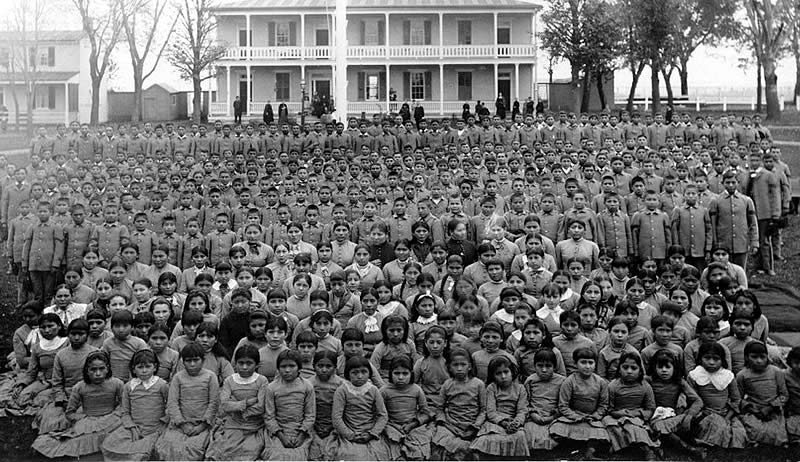|
Homesickness
Homesickness is the distress caused by being away from home.Kerns, Brumariu, Abraham. Kathryn A., Laura E., Michelle M.(2009/04/13). Homesickness at summer camp. Merrill-Palmer Quarterly, 54. Its cognitive hallmark is preoccupying thoughts of home and attachment objects.Thurber, C.A. & Walton, E.A. (2007). Preventing and treating homesickness. ''Pediatrics, 119'', 843–858. Sufferers typically report a combination of Depression (mood), depressive and Anxiety, anxious symptoms, withdrawn behavior and difficulty focusing on topics unrelated to home.Thurber, C.A., Sigman, M.D., Weisz, J.R., & Schmidt, C.K. (1999). Homesickness in preadolescent and adolescent girls: Risk factors, behavioral correlates, and sequelae. ''Journal of Clinical Child Psychology, 28'', 185–196.Thurber, C.A. (1999). The phenomenology of homesickness in boys. ''Journal of Abnormal Child Psychology, 27'', 125–139. Experienced by children and adults, the affected person may be taking a short trip to a nearby p ... [...More Info...] [...Related Items...] OR: [Wikipedia] [Google] [Baidu] |
Nostalgia
Nostalgia is a sentimentality for the past, typically for a period or place with happy personal associations. The word ''nostalgia'' is a neoclassical compound derived from Greek language, Greek, consisting of (''nóstos''), a Homeric word meaning "homecoming", and (''álgos''), meaning "pain"; the word was coined by a 17th-century medical student to describe the anxieties displayed by Swiss mercenaries fighting away from home. Described as a medical condition—a form of Depression (mood), melancholy—in the early modern period, it became an important Trope (literature), trope in Romanticism. Nostalgia is associated with a longing for the past, its personalities, possibilities, and events, especially the "good old days" or a "warm childhood". There is a predisposition, caused by cognitive biases such as rosy retrospection, for people to view the past more positively and the future more negatively. When applied to one's beliefs about a society or institution, this is called ... [...More Info...] [...Related Items...] OR: [Wikipedia] [Google] [Baidu] |
Boarding School
A boarding school is a school where pupils live within premises while being given formal instruction. The word "boarding" is used in the sense of "room and board", i.e. lodging and meals. They have existed for many centuries, and now extend across many countries. Their functioning, codes of conduct, and ethos vary greatly. Children in boarding schools study and live during the school year with their fellow students and possibly teachers or administrators. Some boarding schools also have day students who attend the institution during the day and return home in the evenings. Boarding school pupils are typically referred to as "boarders". Children may be sent for one to twelve years or more in boarding school, until the age of eighteen. There are several types of boarders depending on the intervals at which they visit their family. Full-term boarders visit their homes at the end of an academic year, semester boarders visit their homes at the end of an academic term, weekly boarders ... [...More Info...] [...Related Items...] OR: [Wikipedia] [Google] [Baidu] |
Home
A home, or domicile, is a space used as a permanent or semi-permanent residence for one or more human occupants, and sometimes various companion animals. Homes provide sheltered spaces, for instance rooms, where domestic activity can be performed such as sleeping, preparing food, eating and hygiene as well as providing spaces for work and leisure such as remote working, studying and playing. Physical forms of homes can be static such as a house or an apartment, mobile such as a houseboat, trailer or yurt or digital such as virtual space. The aspect of 'home' can be considered across scales; from the micro scale showcasing the most intimate spaces of the individual dwelling and direct surrounding area to the macro scale of the geographic area such as town, village, city, country or planet. The concept of 'home' has been researched and theorized across disciplines – topics ranging from the idea of home, the interior, the psyche, liminal space, contested space to gende ... [...More Info...] [...Related Items...] OR: [Wikipedia] [Google] [Baidu] |
Hiraeth
() is a Welsh word that has no direct English translation. The University of Wales, Lampeter, likens it to a homesickness tinged with grief and sadness over the lost or departed, especially in the context of Wales and Welsh culture. It is a mixture of longing, yearning, nostalgia, wistfulness or an earnest desire for the Wales of the past. The Cornish and Breton equivalents are and . It is associated with the Amharic-Ethiopian concept of , the German concept of , the Galician-Portuguese or the Romanian . A similar Scottish Gaelic term, ''cianalas'', also refers to a type of longing or homesickness, often used in relation to the Outer Hebrides. Etymology Derived from 'long' and (a nominal suffix creating an abstract noun from an adjective), the word is literally equivalent to English 'longing'. A less likely, but possible, etymology is 'long' + 'pain, grief, sorrow, longing'. In the earliest citations in early Welsh poetry it implies 'grief or longing after the loss or ... [...More Info...] [...Related Items...] OR: [Wikipedia] [Google] [Baidu] |
Swiss Mercenaries
The Swiss mercenaries were a powerful infantry force constituting professional soldiers originating from the cantons of the Old Swiss Confederacy. They were notable for their service in foreign armies, especially among the military forces of the kings of France, throughout the early modern period of European history, from the Late Middle Ages into the 19th century. Their service as mercenaries was at its peak during the Renaissance, when their proven battlefield capabilities made them sought-after mercenary troops. There followed a period of decline, as technological and organizational advances counteracted the Swiss' advantages. Switzerland's military isolationism largely put an end to organized mercenary activity; the principal remnant of the practice is the Pontifical Swiss Guard at the Vatican. Ascendancy During the Late Middle Ages, mercenary forces grew in importance in Europe, as veterans from the Hundred Years War (1337–1453) and other conflicts came to see soldi ... [...More Info...] [...Related Items...] OR: [Wikipedia] [Google] [Baidu] |
Swiss People
The Swiss people (, , , ) are the citizens of the multi-ethnic Swiss Confederation (Switzerland) regardless of ethno-cultural background or people of self-identified Swiss ancestry. The number of Swiss nationals has grown from 1.7 million in 1815 to 8.7 million in 2020. More than 1.5 million Swiss citizens hold multiple citizenship. About 11% of citizens live abroad (0.8 million, of whom 0.6 million hold multiple citizenship). About 60% of those living abroad reside in the European Union (0.46 million). The largest groups of Swiss descendants and nationals outside Europe are found in the United States, Brazil, and Canada. Although the modern state of Switzerland originated in 1848, the period of romantic nationalism, Switzerland is not a nation-state and the Swiss are not a single ethnic group. Rather, Switzerland is a confederacy (') or ' ("nation of will", "nation by choice", that is, a consociational state), a term coined in conscious contrast to "nation" in the conv ... [...More Info...] [...Related Items...] OR: [Wikipedia] [Google] [Baidu] |
Separation Anxiety Disorder
Separation anxiety disorder (SAD) is an anxiety disorder in which an individual experiences excessive anxiety regarding separation from home and/or from people to whom the individual has a strong emotional attachment (e.g., a parent, caregiver, significant other, or siblings). Separation anxiety is a natural part of the developmental process. It is most common in infants and little children, typically between the ages of six months to three years, although it may pathologically manifest itself in older children, adolescents and adults. Unlike SAD (indicated by excessive anxiety), normal separation anxiety indicates healthy advancements in a child's cognitive maturation and should not be considered a developing behavioral problem. According to the American Psychiatric Association (APA), separation anxiety disorder is an excessive display of fear and distress when faced with situations of separation from the home and/or from a specific attachment figure. The anxiety that is exp ... [...More Info...] [...Related Items...] OR: [Wikipedia] [Google] [Baidu] |
Mental Health
Mental health is often mistakenly equated with the absence of mental illness. However, mental health refers to a person's overall emotional, psychological, and social well-being. It influences how individuals think, feel, and behave, and how they cope with stress, relate to others, and make choices. Mental illness, on the other hand, refers to diagnosable conditions—such as depression, anxiety disorders, or schizophrenia—that disrupt a person's thoughts, mood, behavior, or functioning. It is possible for individuals with mental illness to experience periods of good mental health, just as people without a mental illness may struggle with poor mental well-being at times.[1][2] Mental health encompasses emotional, Psychology, psychological, and social well-being, influencing cognition, perception, and behavior. Mental health plays a crucial role in an individuals daily life when managing stress, engaging with others, and contributing to life overall. According to the World Heal ... [...More Info...] [...Related Items...] OR: [Wikipedia] [Google] [Baidu] |
US Army 52421 CAMP TAJI, Iraq - Forty-one Soldiers Of The 1st Battalion, 82nd Field Artillery Regiment, 1st Brigade Combat Team, 1st Cavalry Division, Raise Their Right Hands During A Re-enlistment Ceremony Held At
US or Us most often refers to: * ''Us'' (pronoun), the objective case of the English first-person plural pronoun ''we'' * US, an abbreviation for the United States US, U.S., Us, us, or u.s. may also refer to: Arts and entertainment Albums * ''Us'' (Brother Ali album) or the title song, 2009 * ''Us'' (Empress Of album), 2018 * ''Us'' (Mull Historical Society album), 2003 * ''Us'' (Peter Gabriel album), 1992 * ''Us'' (EP), by Moon Jong-up, 2021 * ''Us'', by Maceo Parker, 1974 * ''Us'', mini-album by Peakboy, 2019 Songs * "Us" (James Bay song), 2018 * "Us" (Jennifer Lopez song), 2018 * "Us" (Regina Spektor song), 2004 * "Us" (Gracie Abrams song), 2024 * "Us", by Azealia Banks from '' Fantasea'', 2012 * "Us", by Celine Dion from ''Let's Talk About Love'', 1997 * "Us", by Gucci Mane from '' Delusions of Grandeur'', 2019 * "Us", by Spoon from '' Hot Thoughts'', 2017 Other media * US Festival, two 1980s California music festivals organized by Steve Wozniak * ''Us'' (1991 ... [...More Info...] [...Related Items...] OR: [Wikipedia] [Google] [Baidu] |
Third Culture Kid
Third culture kids (TCK) or third culture individuals (TCI) are people who were raised in a different culture than their parents, for a large part or the entirety of their childhood and adolescence. They typically are exposed to a greater volume and variety of cultural influences than those who grow up in one particular cultural setting. The term applies to both adults and children, as the term ''kid'' refers to the individual's formative or developmental years. However, for clarification, sometimes the term ''adult third culture kid'' (ATCK) is used. In the expression "third culture kid", the first culture is the culture in which the parents grew up; the second culture refers to the culture in which the family currently resides; and the third culture is the fusion of these, the one to which the child will identify the most. In the early 21st century, the number of Multilingualism, bilingual children in the world was about the same as the number of Monolingualism, monolingual child ... [...More Info...] [...Related Items...] OR: [Wikipedia] [Google] [Baidu] |





